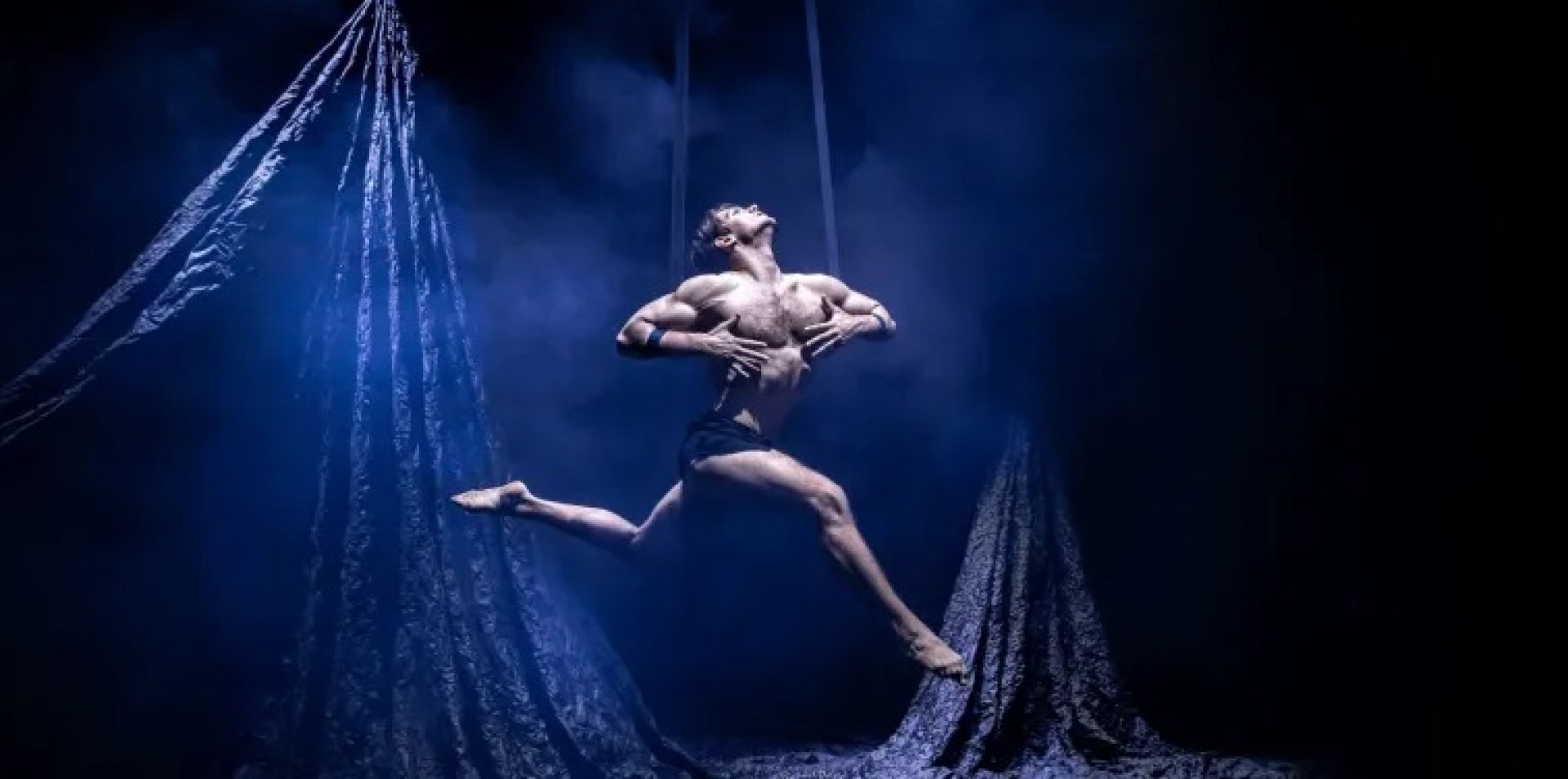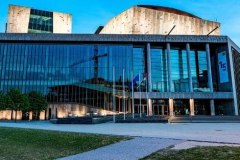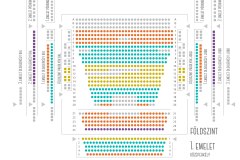Recirquel, Paradisum
Mo | Tu | We | Th | Fr | Sa | Su |
Recirquel’s new production, Paradisum explores the myth of rebirth following the silence of a destroyed world, where the means of communication is the body, and the only common language is movement. The creatures of this idyllic existence unfold from the ever-changing, swirling natural forces of the ‘fabric of life’ that pulsates around them, so they can reach the anima mundi, the world soul, through scenes of purification, birth, awakening and ritual.
Directed and choreographed by Bence Vági, the production explores the new possibilities of cirque danse, a genre that combines contemporary dance and circus, in search of an ethereal language of movement that expresses the concerns of humanity. After My Land (2018), which drew on the power of the motherland, Solus Amor (2020), which told of love across time and space, and IMA (2022) evoked the creative power of silence, in Paradisum, the new being is organically formed from the ‘fabric of life’ that weaves the world dominated by nature, who has no memories, pains and beliefs, and whose movements are instinctive.
Please be advised that strobe lights are used during this performance.
The performance is not recommended for audiences under the age of 12.
The premiere was presented by Müpa Budapest as a joint event with Recirquel as part of the List Fest.
Program and cast
Performed by:
Demissie Efraim
Yevhen Havrylenko
Kateryna Larina
Andrii Maslov
Sergii Materynskyi / Ádám Fehér
Eszter Seguí-Fábián / Ivett Ignácz
Creators:
music: Edina Szirtes
visual design: Bence Vági
associate visual designer, costumes: Emese Kasza
assistant to the costume designer: Alexandra Pálos
sound: Gábor Terjék
lighting: Attila Lenzsér
creative assistants: Nándor Holp
Aliz Schlecht
Kristóf Várnagy
technical director, flight specialist: Tamás Vladár
production manager: Zsófia Szabó
co-choreographers: Zita Horváth
Renátó Illés
Gábor Zsíros
choreographer, director: Bence Vági
Palace of Arts Müpa Budapest
When Müpa Budapest, Hungary and its capital's new cultural hub, opened in 2005, it was built to represent more than 100 years of Hungarian cultural history. As a conglomeration of cultural venues, the building has no precedent in 20th century Hungarian architecture and has no peers in the whole of Central Europe.
The creators of this ambitious project, the Trigránit Development Corporation, prime contractor Arcadom Construction and the Zoboki, Demeter and Partners Architectural Office, were driven by the desire to create a new European cultural citadel as part of the new Millennium City Centre complex along the UNESCO World Heritage-listed Danube waterfront. The result is a facility whose construction quality, appearance, functionality and 21st century technological infrastructure makes it ideally suited to productions of the highest standard. The building is also highly versatile and equipped to host performances of any genre and almost any scale.

 EN
EN DE
DE IT
IT FR
FR ES
ES RU
RU JP
JP RO
RO
 Seating plan
Seating plan 
